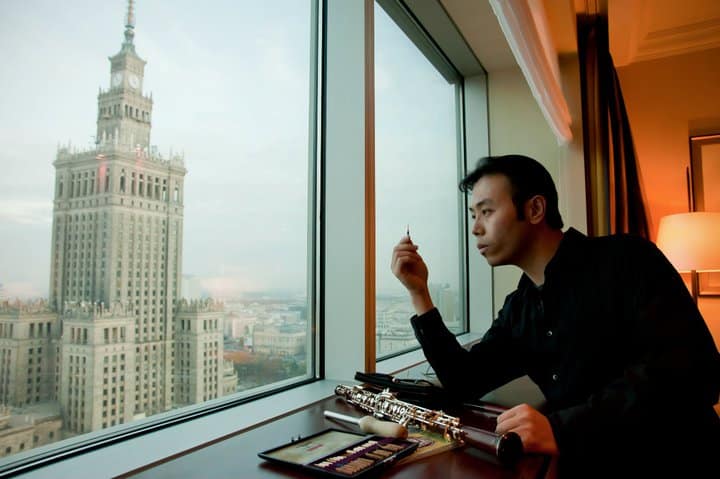As churchgoing fades, how will kids be inspired to sing?
Comment Of The DayBeyoncé admits she had her first exposure to singing when taken to church on Sundays as a child. So did most opera singers.
But as the churchgoing habit declines in Europe and the US, where will children receive their first inspiration to enter the covenant of music. Will kids in Africa and East Asia be the only ones?
What can be done to keep music at the centre of children’s attention?
Discuss.






Join a choir there’s lots in Wales and I’m sure elsewhere.
Schools could help but, in many cases, show little interest in doing so.
This is a significant issue. When I was teaching high-school their music program was largely crash bang.
And I suggest we’re failing to enchant our young people, merely capturing them with dysphoric notions of gender and the climate apocalypse. Can’t have it both ways folks.
It’s an interesting question. In the US, many of the children’s choirs (both school ones and extracurricular) sing such bland contemporary music that it doesn’t hold kids’ interest for long. My daughter joined a respected regional children’s choir here and asked to quit after her first season because the music choices were so dull (the theme of the season was ‘Earth our Mother’). If these choirs put more focus on classical music of all eras, that would be a start.
Meanwhile, my kids grumble about being taken to church on Sundays but I hear them humming and singing the hymns they hear there all the time.
It is written:
Psalm 92: 1 “It is a good thing to give thanks unto the LORD, and to sing praises unto thy name, O most High: 2 To shew forth thy lovingkindness in the morning, and thy faithfulness every night, 3 Upon an instrument of ten strings, and upon the psaltery; upon the harp with a solemn sound.”
Contemporary “Earth our Mother” stuff will, no doubt, appeal to the faithless stately churches, with an intense interest in pronouns.
Karaoke bars? Community choir groups? A cappella sleepaway camps?
Retired music teacher here: regular school assemblies where all the children sing as part of the program.
OK; but just as long as religion plays no role.
Interesting comment.
I only wish JS Bach had heeded those words!! Wouldn’t we all be just so much better off??
One can always go to the synagogue, or a kingdom hall.
Or a non-conformist chapel.
Youtube, Tiktok, local choir organizations, artists from spotify….
But the real question is not that. The real question is:
With the advent of the car, how will children be inspired to become Smiths?
How can we keep Smithing at the center of children’s attention?
The industrialists are destroying our centuries old traditions! Plus these “cars” are not safe and detach us from nature. At 30 KM/hr you can kill people in the fields.
ITS THE END OF THE WORLD!
Must do something!!
Save the Horses! Save the Smiths!
They will find out for instance that the latest Jason Aldean song has been censored so they will learn it immediately.
We sang at school! Our choir was excellent. No need to go to church for this.
True, but the point remains. The origins of classical music, classical singing, and opera are European, and Christian or Catholic. Much of the great choral music is sacred. Yes, some kids are very fortunate to have great choral programs and music programs in their schools. Most do not. Also, learning to sing in a school choir requires that you want to join the choir as one of your elective classes. Throughout history, and particularly in the West during the 20th century, a large percentage of the population attended church services where they were singing hymns, reading out of hymnals and singing in parts. This did not require you to have a predilection for music or singing, therefore it was not self-selective in that way. Whether you were a scientist, an accident, a poet, an athlete, or a 9-year-old kid you gathered together with people and sang, regardless of how good you were at it or what level of interest you had in it. This way, some people discovered that they could sing, or discovered that they loved music. They were exposed to it and invited to participate no matter what their skill or interest level. When the only people who are exposed to this kind of music are those who sign up for it in school, you are eliminating that exposure to a giant swath of people.
Another important question, is how more contemporary worship styles in Catholic and Protestant churches in the West is impacting this as well. We have exchanged organs and pianos for guitars, microphones, and drums. There are many great things about this kind of music, but it does almost nothing for cultivating musical aptitude.
When I was growing up, we read out of hymnals, singing in parts. I was no musician at the time, but I learned enough basic sight reading just from singing on Sunday to get a remedial understanding of how it worked. I can confidently say that that experience trained my ear for harmonies in a way that my four years in a top flight high school choral program built on, but could not have given me on its own.
We have exchanged organs and pianos for guitars, microphones, and drums. There are many great things about this kind of music, but it does almost nothing for cultivating musical aptitude.
Nonsensical conclusion.
Just inundate the young with more Taylor Swift and Justin Bieber clones…that’s sure to prosper the “covenant of music” for the foreseeable future! God help us!
Whenever I would try to get kids to sing in the proper tesseturia for the young voice they would all fuss that, “it’s too high”.
This is in the self proclaimed ” land of 10,000 choirs” though most are either bland and so pretty dull to listen to, or consist of eight tone deaf octogenarians. Programs like American Idol etc., tend to devalue it. The first and last time I listened to it I wouldn’t have moved any of the contestants beyond level one.
I speak out of general ignorance of the subject, but in my country of Canada I know quite a few singers that did not, in effect, go through church. Some certainly do, but has it been most?
When I was in the 4th grade at Primary school, our teacher Mrs Deeble, always made sure we started the day with a song – every single day. Mind you, she was skilled at teaching children singing, because she was also the choral conductor for the school choir and the conductor of the combined schools choral festival which was held annually. Alas, this does not exist any more. Especially though, Mrs Deeble motivated us to sing. We loved it!
It was a long time ago but I loathed being dragged to church and singing hymns that meant virtually nothing to me. On the other hand, I had been sent to piano lessons aged 6 and this slowly inspired what was to become a lifelong love of music. Being taken to my first operas at the start of my teens – The Bartered Bride and then Nozze di Figaro – was eye opening and for the first time singing actually meant something for me. So I later joined choirs at school and then University.
Most hymn tunes were written well over a century ago and still mean nothing to kids in my view. Most are just plain boring! Some friends and I had much more enjoyment from music lessons at school. That, though, was largely thanks to a really excellent teacher and how lessons were structured. He made music approachable and fun. I know many classmates were just bored, but quite a few of us enjoyed them.
That said, I can’t believe that a churchgoing habit has in general inspired a love of singing in East Asians! There must be another reason.
Shame you’ve used christchurch priory as the image here where we keep two choirs with more than 30 children singing every week.
There is indeed a national decline, however there are still churches which are musically strong and inspiring children every week.
They can rap, I suppose. The texts are inspiring and politically correct for sure.
Connect the churches with the schools and communities around them so that they can act as singing hubs; and train more music leaders to provide the kind of inspiration that so many of us benefited from. That’s part of what RSCM’s plans include!
We also need to provide more people while will stand up and be counted for the impact that church music had on them – hence RSCM’s International Chorister Day in October.
Excellent picture, by the way: I was organist of Christchurch Priory for nearly 6 years; it had more than 50 children in choirs then, and still has lots of children singing now.